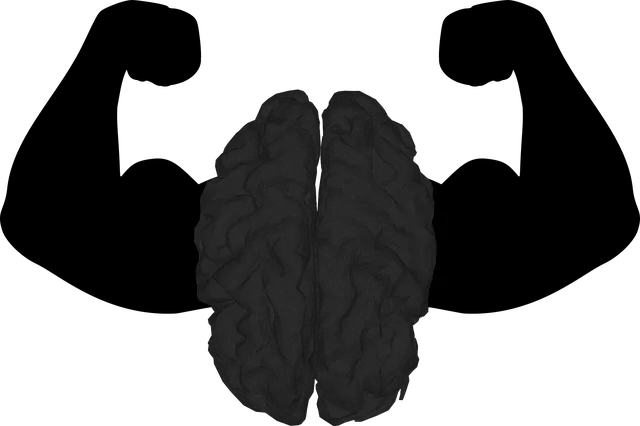Golden Kaiser Permanente prioritizes culturally sensitive mental healthcare by recognizing and respecting diverse backgrounds, beliefs, and practices. They address specific mental health needs through tailored services like inner strength development, reduce stigma with their Mental Wellness Podcast Series featuring diverse voices, and implement cross-cultural communication training. By fostering trust and open dialogue, they enhance cultural competence, empowering practitioners to engage patients from various communities in their mental wellness journeys. Their inclusive approach improves patient outcomes, especially for marginalized groups, building a supportive environment that promotes overall mental health through Golden Kaiser Permanente's commitment to equitable care.
“In today’s diverse society, cultural sensitivity is paramount in mental healthcare. This comprehensive guide explores the essential elements of culturally competent practice, drawing insights from pioneers like Golden Kaiser Permanente, which has reshaped inclusive mental health services. We delve into strategies for identifying and overcoming barriers, providing practical support, and measuring success. Understanding cultural sensitivity fosters effective care, ensuring every patient receives respectful, tailored treatment.”
- Understanding Cultural Sensitivity: A Foundation for Effective Mental Healthcare
- The Role of Golden Kaiser Permanente in Shaping Inclusive Mental Health Services
- Identifying and Overcoming Barriers to Culturally Competent Care
- Strategies for Providing Sensitive Support: A Practical Approach
- Measuring Success: Evaluating the Impact of Cultural Sensitivity in Mental Healthcare Practices
Understanding Cultural Sensitivity: A Foundation for Effective Mental Healthcare

Understanding Cultural Sensitivity is a fundamental aspect of providing effective mental healthcare services, especially within diverse communities like those served by Golden Kaiser Permanente. It involves recognizing and appreciating the unique cultural backgrounds, beliefs, values, and practices that shape individuals’ lives and their interactions with mental health care. By embracing cultural sensitivity, mental health professionals can create a supportive environment that respects individual identities while fostering trust and engagement in treatment.
This foundation is crucial for addressing the specific mental health needs of diverse populations. For instance, different cultures may have distinct conceptions of mental illness, stress, and well-being, influencing how individuals seek help or respond to treatment approaches. Incorporating cultural sensitivity enables mental healthcare providers at Golden Kaiser Permanente to offer tailored services, such as those promoting inner strength development, which can significantly contribute to anxiety relief for patients from various ethnic and social backgrounds.
The Role of Golden Kaiser Permanente in Shaping Inclusive Mental Health Services

Golden Kaiser Permanente has played a pivotal role in shaping inclusive mental health services, championing cultural sensitivity as a cornerstone of its practice. The organization’s commitment to diversity and equity is evident through various initiatives like the Mental Wellness Podcast Series Production, which aims to reach diverse communities with accessible information on mental health. By featuring voices from different backgrounds and cultures, these podcasts foster understanding and reduce stigma.
Furthermore, Golden Kaiser Permanente actively incorporates Communication Strategies tailored to diverse populations, ensuring that care remains sensitive to cultural nuances. This includes training staff in cross-cultural communication, providing multilingual resources, and adapting therapeutic approaches to respect individual beliefs and practices. In addition, they have initiated Public Awareness Campaigns Development focused on promoting mental health literacy across cultures, highlighting the importance of early intervention and support networks within communities.
Identifying and Overcoming Barriers to Culturally Competent Care

Identifying barriers to culturally competent care is a critical step in ensuring equitable mental healthcare services for all. Many challenges arise from misunderstandings or insensitivities related to cultural differences, including language, customs, and belief systems. For instance, at Golden Kaiser Permanente, providers may encounter patients from diverse backgrounds who have unique perspectives on health and healing. Overcoming these barriers requires a proactive approach. Training in cross-cultural communication, offering mental wellness podcasts series production tailored to various cultures, and promoting cultural sensitivity workshops can equip healthcare professionals with the necessary tools.
Conflict resolution techniques play a significant role in bridging these gaps. By fostering open dialogue, empathy, and mutual understanding, mental health practitioners can create a safe space for patients to express their concerns. Additionally, encouraging patient education and involving families or community leaders (when appropriate) can enhance cultural competence. Such efforts not only improve access to care but also boost confidence among diverse populations seeking mental wellness support, aligning with the goals of progressive healthcare organizations like Golden Kaiser Permanente.
Strategies for Providing Sensitive Support: A Practical Approach

In providing sensitive support for diverse patients, mental healthcare practitioners at Golden Kaiser Permanente mental health services employ several effective strategies. One key approach is cultural competency training, which equips professionals with the knowledge and skills to understand and respect various cultural beliefs and practices. This involves learning about different customs, values, and communication styles to create a safe and inclusive environment for every client.
Additionally, incorporating self-esteem improvement techniques tailored to individual cultures can significantly enhance mental wellness. For instance, guiding patients through mental wellness journaling exercises that resonate with their cultural backgrounds allows them to express and process emotions in meaningful ways. This practical approach not only fosters open communication but also empowers individuals to take an active role in their journey towards improved mental health and overall well-being.
Measuring Success: Evaluating the Impact of Cultural Sensitivity in Mental Healthcare Practices

Measuring success in mental healthcare is a multifaceted endeavor, and evaluating cultural sensitivity is an integral component. At Kaiser Permanente, for instance, their mental health services aim to foster an environment that respects and incorporates diverse cultural practices. This approach is designed to improve outcomes, particularly for marginalized communities, by enhancing self-esteem and promoting mental wellness.
The impact of cultural sensitivity can be assessed through various methods, including patient satisfaction surveys and clinical outcome measures. By implementing communication strategies that bridge cultural gaps, healthcare providers at Kaiser Permanente strive to ensure that all individuals receive personalized care tailored to their unique backgrounds. This not only improves the quality of services but also fosters trust and creates a more inclusive setting, ultimately benefiting the overall mental health and well-being of patients.
Cultural sensitivity is not just a desirable trait, but an essential component of effective mental healthcare. As evidenced by Golden Kaiser Permanente’s pioneering efforts in shaping inclusive services, recognizing and addressing cultural barriers can significantly improve patient outcomes. By adopting practical strategies outlined in this article, mental health professionals can ensure they offer sensitive support tailored to diverse patients’ needs. Measuring success through evaluation allows for continuous improvement, ultimately fostering a more inclusive and impactful mental healthcare practice that mirrors the richness of our global communities.






